Should You Be Your Own "Monday Morning Quarterback?"
New research shows that we make different—and better— decisions when we are thinking about what others should do —or should have done—than we do for ourselves. So, how can we make this idea work for us in our lives and in our careers as we go about making choices?
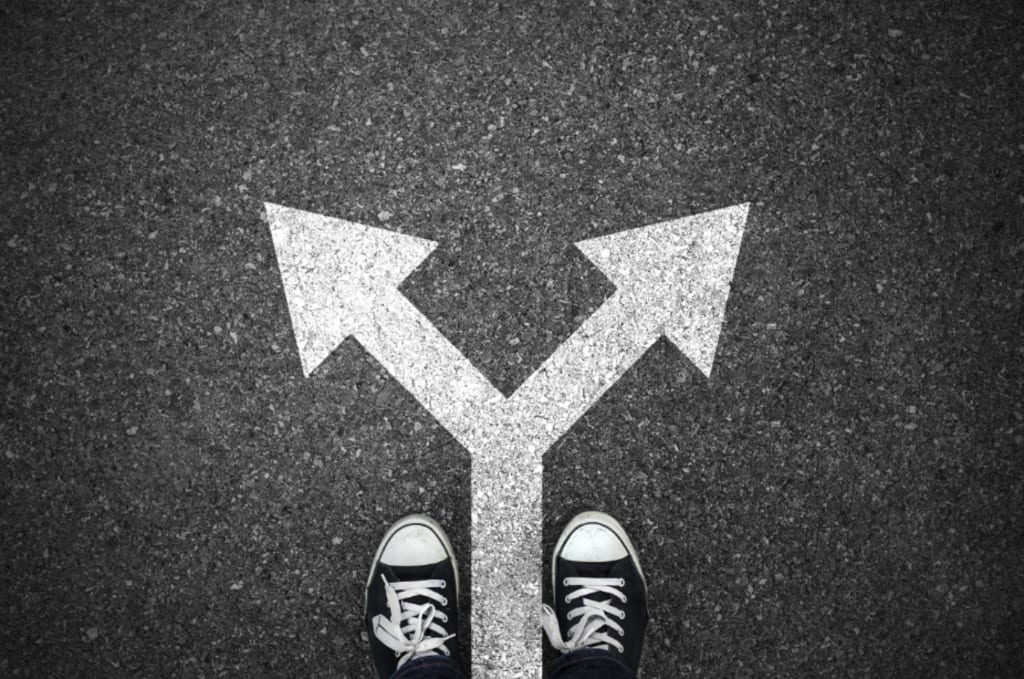
We all know "them." In fact, you may work with a few—or more—of them. In your background, you likely had a teacher or two in school and/or a coach or two in sports who was one of them. If you are in the writing business, you might run into editors who quite often are indeed one of them. You may be related to them. In fact, you might be even be married to one of them! And you might be at the stage in your life where you miss having a parent who was one of them.
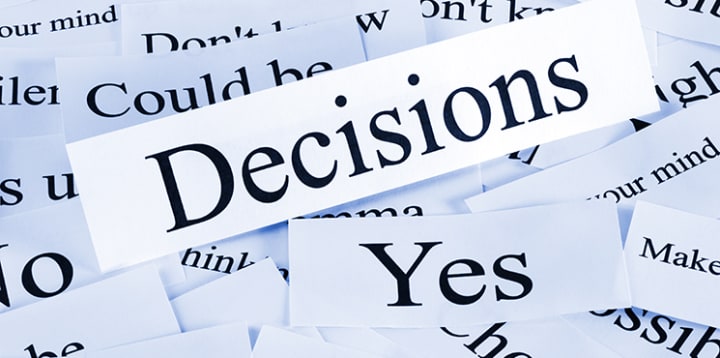
So, who are "them?" These are the analysts we have in our lives. They are the managers, the coworkers, the teachers, the coaches, the editors, the friends, and yes, the spouses and moms and dads and other assorted relatives—particularly of the older variety—who consistently look upon your life from a certain perspective. That viewpoint is an almost unwaveringly consistent, as if they were the color analyst on the telecast of a college football game or a policy expert on CNN. Welcome or not, they are the the "Dr. Phil" in your life, always willing to opine on what you should do, what you should have done, and/or what would have been the "right" decision in a given situation.

Dr. Phil - with the "What were you thinking?" stare!
From should you take that job, should you move to Omaha, should you marry that woman, or heck, even if you should have chosen the combo plate versus ordering à la carte, they are your advisor—asked for or not, wanted or not, trusted or not, listened to or not. They will never hesitate to tell you what they think you should do before the fact, and they will certainly never withhold their opinion on what you should have done in any given situation. In short, they are either (or can be both) your personal, free, real-time consultant—and your "Monday Morning Quarterback" to critique your decision after the fact like an expert referee analyst breaking down a disputed call in a football game with sixteen instant replay angles.

And so that is why some fascinating new research, recently summarized in the Harvard Business Review, should be of interest to us all. Evan Polman is a marketing expert who currently serves as the Cynthia and Jay Ihlenfeld Professor for Inspired Learning in Business at the Wisconsin School of Business at the University of Wisconsin–Madison. He recently wrote a synopsis, Why It’s Easier to Make Decisions for Someone Else, of some very interesting research he carried out for HBR, working along with three Chinese colleagues (Yi Liu and Yongfang Liu of East China Normal University in China and Jiangli Jiao of Xinjiang Normal University).
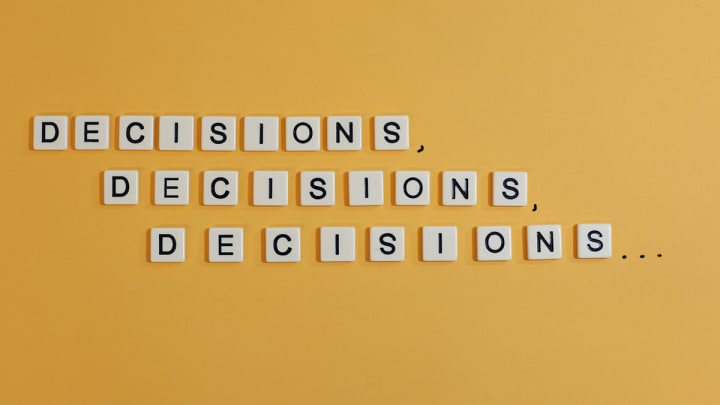
What these researchers investigated was a very basic question: Do people make decisions differently when they are making it for themselves or making it for someone else? Specifically, they wanted to see how people might differ in terms of how they search for information to make a decision and how they evaluate that information in the decision making process. Their study encompassed over a thousand individuals, who were tasked with making decisions—both for themselves and for someone else they knew—in a variety of common circumstances: Where should they go to eat? What job offer should they take? Which individual should they choose to date?
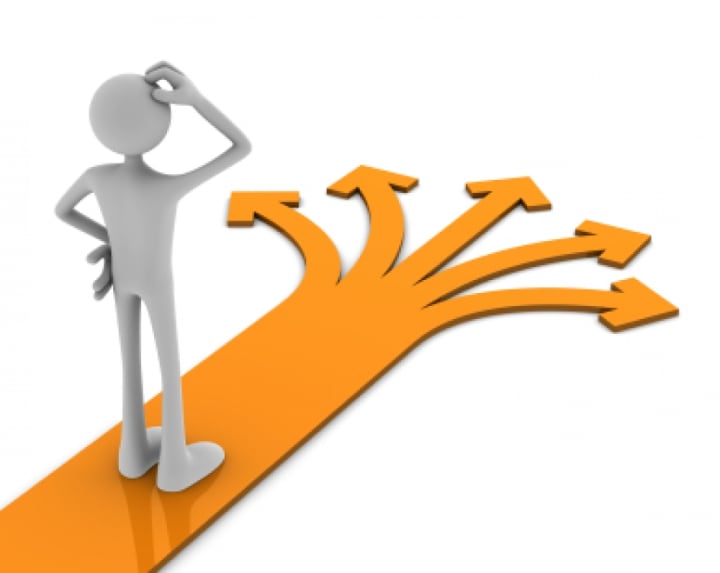
What they found was very interesting - and relevant for all of us. They found that we really do approach decision making differently across a whole host of situations—from the important (jobs) to the could be important (dating) to the day-to-day trivial (eating). Polman's research showed that when making decisions for ourselves, we tend to have what his team described as a "cautious mindset." They characterized this approach in this manner:
Employing a cautious mindset when making a choice means being more reserved, deliberate, and risk averse. Rather than exploring and collecting a plethora of options, the cautious mindset prefers to consider a few at a time on a deeper level, examining a cross-section of the larger whole.
In contrast, when we are making choices for others, the research team found that people are more likely to employ what they term an "adventurous mindset," which they described in the following way:
An adventurous mindset prioritizes novelty over a deeper dive into what those options actually consist of; the availability of numerous choices is more appealing than their viability.
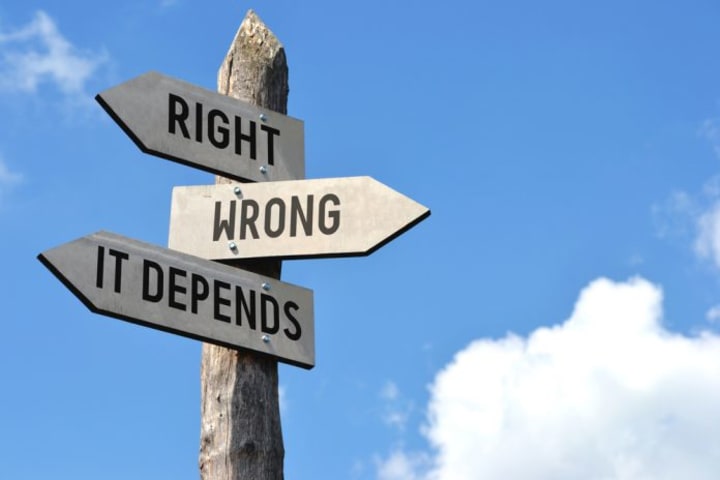
So, when having to make a decision for ourselves, we tend to look deeply at a limited number of options. In fact, the researchers said we often go deep to the "granular level, zeroing in on the minutiae." In contrast, when we are looking at making decisions for others, we are "bolder," willing to explore a wider range of options. In doing so, we are more focused on having more options that exploring all possible sources of information we can about the situation. We become more concerned about having alternatives than knowing everything we can about those alternatives. In short, we tend to think wider when we help or reflect on the decisions for others than when we are choosing for ourselves. However, when we are considering a decision that we must make, we are more willing to take the time to go deep into a situation and focus on having more knowledge about the possible ramifications and implications of taking one path over another.
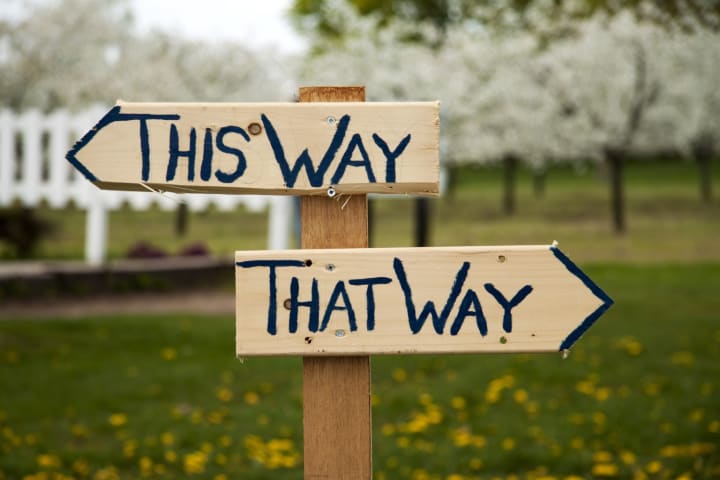
So, what does this mean for us in our lives and in our careers? Knowing this, we need to rethink—or think for the first time—about how both we go about making choices for ourselves and how we help others make decisions in their own lives.
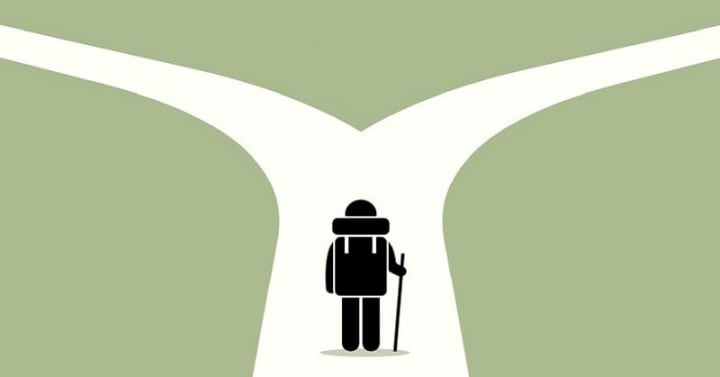
To improve our own decision making, we need to strive to look beyond the normal in how we approach situations necessitating a choice. Now if we're talking about how we go about making routine decisions, such as which movie to go to tonight or which brand of soda to buy in the supermarket, we are not likely—nor is it critical—that we change our ways. However, when it comes to our jobs, our careers, our homes and families, we should be aware that the tendency is to approach matters with a cautious mindset —and there is nothing wrong with being cautious, especially when it comes to big, life altering decisions. And yet, we need to really work at look beyond decision situations simply being an "either-or," "yes-or-no," go-or-no go" choices to make. If we are willing to employ more of an adventurous mindset, we may find that there are more than two paths to choose from in many, if not most, decision situations. By brainstorming on what the other possibilities for us might be, rather than going deep on the simple "should I or shouldn't I?" of two alternatives, we may have that third, fourth or even fifth or more option that might just produce a better outcome for us than the original two.
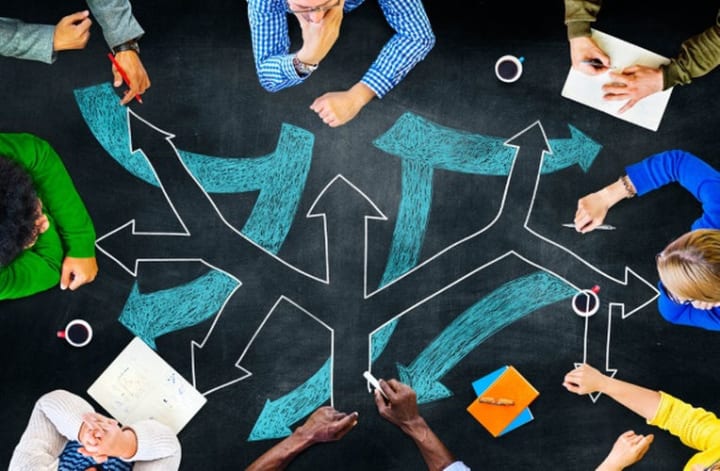
In contrast, when we are assisting others in making choices, we need to realize that there are ways we can be more helpful to them in a given situation being mindful of this research. Namely, this would be being aware that our tendency in advising others on decisions is to go wide, rather than going deep. If we know that we can be too focused on coming up with alternatives in a given situation and not focused enough on helping our friend, our coworker, our relative... anybody to go deep into a limited set of alternatives, this may radically change our approach—and make us better in providing that help. Maybe rather than throwing out the standard, "Have you though about this?" once we think that we have provided a requisite look at a situation to see if their are viable alternatives that the other person hasn't considered, we should turn our attention to helping them really consider the advantages and disadvantages more deeply of a set number of choices. Indeed, we may help them see possibilities—or possible consequences—that they had not thought of concerning their options—and this can be far more valuable to them than simply generating a wider array of choices, which can serve to make the whole process more and more complex for them—and make it last even longer.
So in the end, we can be a better friend, a better boss, a better father, mother or spouse, a better coworker, and yes, a better decision-maker, by knowing that there is some real psychology involved in all of this, and modifying how we approach decision situations, both for ourselves and for those around us.
About the Creator
David Wyld
Professor, Consultant, Doer. Founder/Publisher of The IDEA Publishing (http://www.theideapublishing.com/) & Modern Business Press (http://www.modernbusinesspress.com)


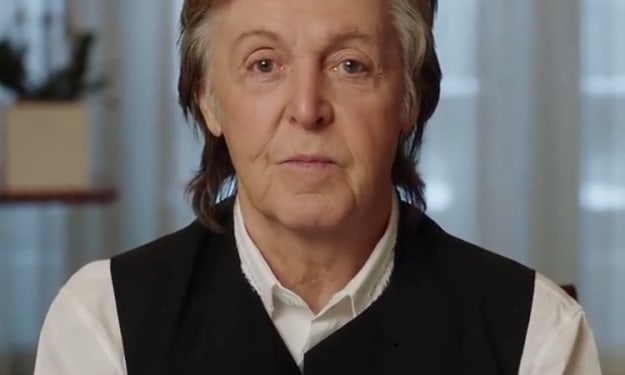



Comments
There are no comments for this story
Be the first to respond and start the conversation.